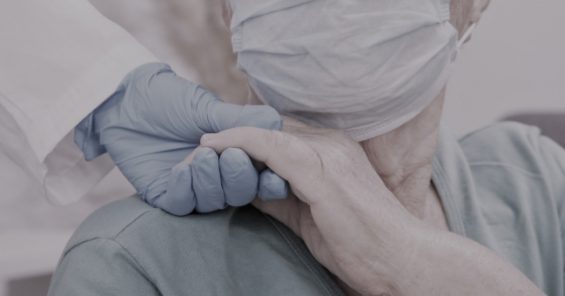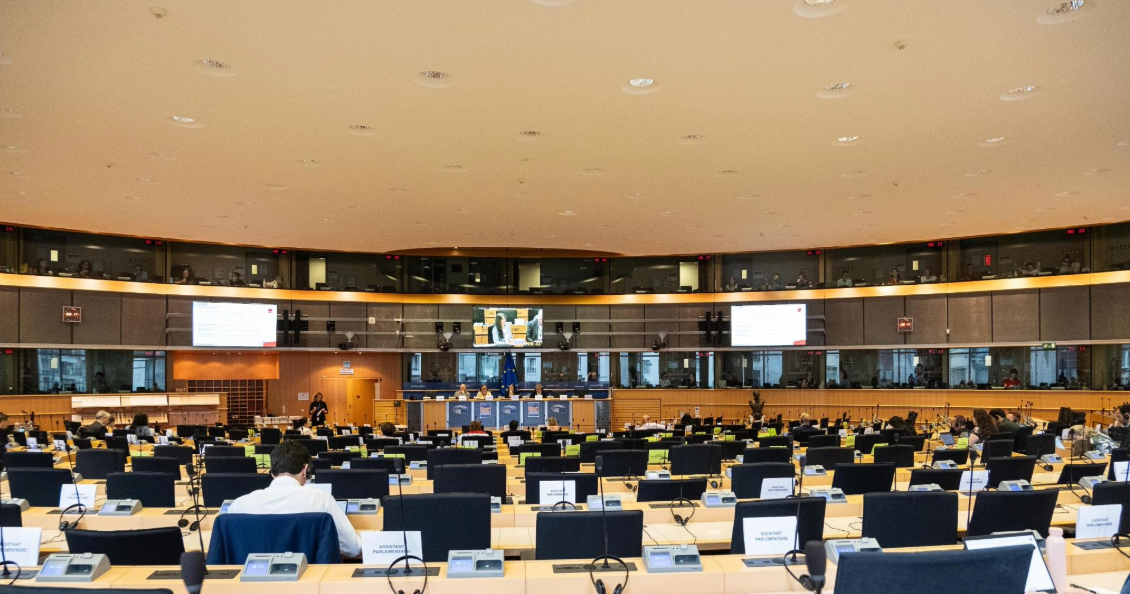NYON, Switzerland, and LONDON—With the spotlight of the COVID-19 pandemic illuminating and exacerbating many long-standing issues in the nursing home sector, a coalition of 95 investors with US$3.34 trillion in assets under management launched a new initiative today to drive up working conditions and quality of care in nursing homes.
The group—coordinated by UNI Global Union and including International Business of Federated Hermes, Aviva, BMO Global Asset Management, Sycomore Asset Management, along with over 70 pension funds—is reaching out to the largest public care operators and real estate owners globally with a new set of expectations for the sector.
In a joint statement which investors will be sharing with companies in the sector, including the largest companies like Orpea, Chartwell, and Sienna Senior Living, the investors say that the long-standing problems of the industry during the pandemic must be addressed through adequate staffing levels, expanded collective bargaining and union representation, improved health and safety, liveable wages, and enhanced quality of care.
“[A]s the sector recovers, and we reflect upon the damage to our societies and the loss of human life during the pandemic, we must seize this moment to ensure the industry changes for the better and develops a more humane and resilient model,” they said.
This model would put the long-term care companies in line with the UN Guiding Principles on Business and Human Rights as well as mitigate the legal, reputational, and operational risks for their investee companies in the nursing home sector.
“The pandemic has exposed how precarious many nursing homes have been for workers and residents. It has created a Rana Plaza moment in this industry and shows the need for increased public scrutiny,” said UNI General Secretary Christy Hoffman, referencing the deadly industrial disaster in Bangladesh that led to significant, binding reforms to the garment supply chain.
She continued, “By setting out these expectations together, this new coalition will play a vital role in putting social responsibility and human life—not short-term profits—at the centre of long-term care.”
Recognising the many causes of the losses of lives in nursing homes, the statement goes on to make a direct link between working conditions and the quality of resident care. Nursing home residents accounted for 41% of all COVID-19 related deaths during the pandemic, and hundreds-of-thousands-of nursing home workers have also become infected, many of whom are facing long lasting aftereffects and a large number have died.
One year into the pandemic, research by UNI finds that most care workers do not earn a liveable wage and nearly a third are without adequate access to personal protective equipment.
Long-term care companies must enhance board level oversight—including making sure directors have the expertise to effectively implement investors’ expectations. Companies in the sector should also disclose how the risks addressed by the newly set out expectations are monitored, managed, and integrated into management incentive schemes and performance targets.
Nina Roth, Director Responsible Investment, BMO Global Asset Management, said:
“We are very pleased to work with UNI Global Union to support this important initiative to raise labour standards across the nursing home sector. We believe these expectations come at a crucial time, and the bar very clearly needs to be raised in quality of resident care and working conditions, including on respecting the rights to freedom of association and collective bargaining. We look forward to working together with the companies we invest in to reach them.”
Director Vincent Kaufmann of the Ethos Foundation, Switzerland, said:
“We cannot ignore the severe problems we have seen in nursing homes over the past year. The pandemic has exposed and exacerbated pre-existing issues in this industry. As long-term responsible investors, we expect our investee companies to develop sustainable business models that deliver quality care for residents and good jobs for workers. Together with other investors, we look forward to collaborating with nursing home companies, members of their boards, advocates for older adults, and unions to make these ESG goals a reality.”
Chair of the UK’s Local Authority Pension Fund Forum (LAPFF) Doug McMurdo, said:
“Covid has shone the spotlight on the social risks facing investors. Nowhere has this been truer than in the care home sector. While many of the risks to staff, clients and investors in the sector are not new, the impact of the pandemic does demand they are now urgently addressed.”
Frédéric Ponchon, Partner and portfolio manager at Sycomore Asset Management:
“The long-term success of the nursing home sector depends on the quality of care and the working conditions these companies are able to provide. Improving those will be key to tackle staffing shortages and restore public trust – especially in the aftermath of the COVID-19 pandemic. We are putting forward our common expectations as investors, that if realized, would improve the lives of millions of residents and long-term care workers. Our responsibility as shareholders is to promote them through constructive dialogue and support our investee companies in their efforts to reach those standards.”
UNI expects the coalition to grow over the coming weeks, and the investors will also continue to push for governmental action to raise the quality of care.


